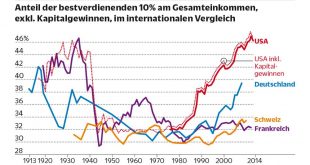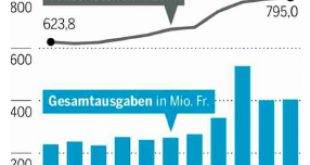On Alphaville, Kadhim Shubber reports that just a few marketplaces handle the vast majority of illicit drugs-vs.-bitcoin trades. In short, the illicit bitcoin ecosystem is centered around a small number of services that could be subject to scrutiny, regulation and co-option by law enforcement. It’s a wild west, but luckily for the police all the bad guys are hanging out at a single saloon.
Read More »Princeton
Kurt Gödel. John von Neumann. Albert Einstein.
Read More »Doing Business, and Politics
The World Bank’s Doing Business project claims to provide objective measures of business regulations and their enforcement across 190 economies and selected cities at the subnational and regional level. In the Wall Street Journal, Josh Zumbrun and Ian Talley report that the ranking must be revised. Over time, World Bank staff put a heavy thumb on the scales of its report by repeatedly changing the methodology that was used to calculate the country rankings, Mr. Romer said. The focus of...
Read More »“Nobel Prize-Winning Contributions to Economics”
Economics is not about predicting stock markets, exchange rates, or GDP. Its aim is to make sense of human interaction in the small and the large. Marek Hlavac’s online course Nobel Prize-Winning Contributions to Economics provides an overview over the work of deep economic thinkers.
Read More »iGen
In the FT, Leslie Hook reports that activist investors want Apple to address concerns over smartphone addiction and the mental health effects of phone use among children. They refer to psychologist Jean Twenge according to whom teenagers today (“the iGen”) … are more vulnerable than Millennials were: Rates of teen depression and suicide have skyrocketed since 2011. It’s not an exaggeration to describe iGen as being on the brink of the worst mental-health crisis in decades. Much of this...
Read More »Inequality in the United States
… meanwhile, inequality in the US remains more of an issue. On Alphaville, Kadhim Shubber summarizes a DB Global Markets Research study on US inequality: More than 30% of US households have zero or negative non-home wealth. Wealth is increasingly concentrated among the old, and among the wealthy. Observers paint the picture of an increasingly dysfunctional society. And they point to the relevance of inequality for political polarization and accountability.
Read More »Inequality in Switzerland
In a paper, Reto Föllmi and Isabel Martínez document trends in income and wealth inequality in Switzerland over the last 100 years. Daniel Hug reports in the NZZaS (figures below taken from NZZaS). Data (World Wealth and Income Database, based on tax records). Some findings: Income inequality has been rather stable and is modest … … although social mobility as reflected in educational attainment is low. Income inequality at the very top has increased. The top 1% of income recipients earn...
Read More »United Nations
Swiss Perfectionism
In Der Bund, Adrian Sulc comments on the Swiss National Bank’s perfectionism. Keine andere Schweizer Organisation kommuniziert so professionell wie die SNB, keine andere Organisation kann so gut dichthalten. Perfectionism is costly. Der Personalbestand ist in den letzten fünf Jahren um 18 Prozent auf 795 Vollzeitstellen gestiegen. … Die durchschnittlichen Lohnkosten pro Mitarbeiter betragen mittlerweile 155 000 Franken...
Read More »Swiss Perfectionism
In Der Bund, Adrian Sulc comments on the Swiss National Bank’s perfectionism. Keine andere Schweizer Organisation kommuniziert so professionell wie die SNB, keine andere Organisation kann so gut dichthalten. Perfectionism is costly. Der Personalbestand ist in den letzten fünf Jahren um 18 Prozent auf 795 Vollzeitstellen gestiegen. … Die durchschnittlichen Lohnkosten pro Mitarbeiter betragen mittlerweile 155 000 Franken pro Jahr. Dies weil gemäss Nationalbank fast ausschliesslich...
Read More » Swiss Economicblogs.org
Swiss Economicblogs.org




